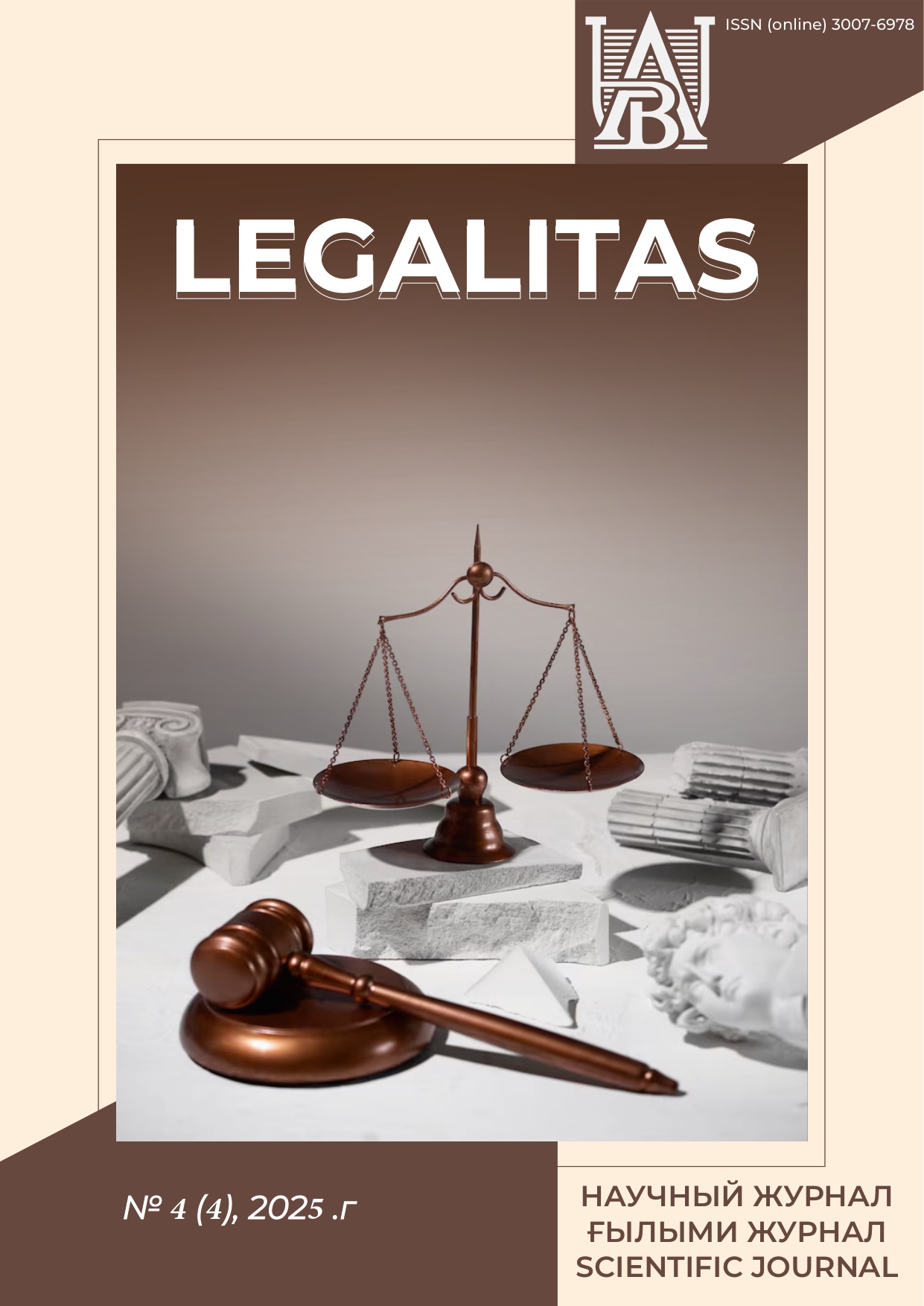OF THE USE OF ARTIFICIAL INTELLIGENCE IN JUSTICE
Abstract
Abstract. The rapid development of artificial intelligence (AI) technologies opens new horizons for optimizing the justice system, promising increased efficiency, speed, and accessibility of legal processes. However, like any powerful tool, AI brings not only opportunities but also serious ethical challenges. This article analyzes the key ethical aspects of applying AI in the field of justice. The research focuses on issues such as algorithmic bias, decision-making transparency (the "black box" problem), the distribution of responsibility for AI errors, the potential dehumanization of the judicial process, and the impact on the human role within the justice system. The methodology includes an analysis of scientific literature, regulatory acts, and existing practices of AI implementation. The study identifies major risks and proposes principles to minimize negative consequences: ensuring data fairness, developing mechanisms for algorithm audit and explainability, clearly defining legal liability, and preserving the central role of humans in final decision-making. The article emphasizes the need for an interdisciplinary approach and public dialogue to form a robust ethical and legal framework that will allow harnessing AI's potential for the benefit of justice without undermining its fundamental principles.

